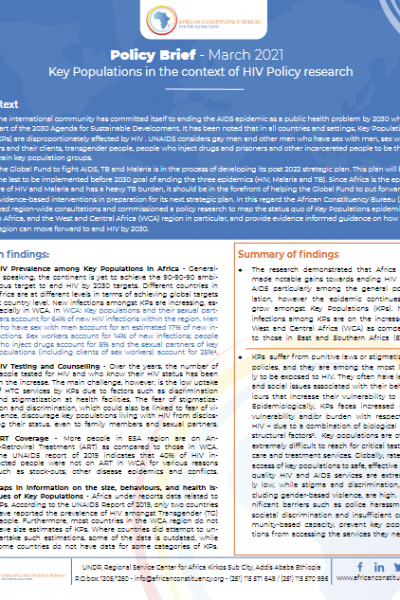
Click on the link above to download resource
Key Populations in the context of HIV Policy research
Context
◆ The international community has committed itself to ending the AIDS epidemic as a public health problem by 2030 which is part of the 2030 Agenda for Sustainable Development. It has been noted that in all countries and settings, Key Populations (KPs) are disproportionately affected by HIV1. UNAIDS considers gay men and other men who have sex with men, sex workers and their clients, transgender people, people who inject drugs and prisoners and other incarcerated people to be the main key population groups.
◆ The Global Fund to fight AIDS, TB and Malaria is in the process of developing its post 2022 strategic plan. This plan will be the last to be implemented before 2030 goal of ending the three epidemics (HIV, Malaria and TB). Since Africa is the epicentre of HIV and Malaria and has a heavy TB burden, it should be in the forefront of helping the Global Fund to put forward evidence-based interventions in preparation for its next strategic plan. In this regard the African Constituency Bureau (ACB) lead region-wide consultations and commissioned a policy research to map the status quo of Key Populations epidemic in Africa, and the West and Central Africa (WCA) region in particular, and provide evidence informed guidance on how the region can move forward to end HIV by 2030.